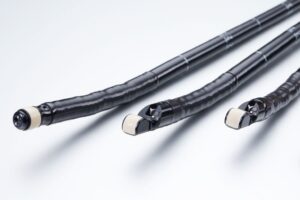 The United States Food and Drug Administration (FDA) recently released a letter to healthcare providers warning about the risk of infection associated with poorly reprocessed urological endoscopes. The letter from the FDA mentions that there have been over 450 Medical Device Reports filed by healthcare facilities that detail the patient infections associated with contaminated cystoscopes, ureteroscopes and cystourethroscopes.
The United States Food and Drug Administration (FDA) recently released a letter to healthcare providers warning about the risk of infection associated with poorly reprocessed urological endoscopes. The letter from the FDA mentions that there have been over 450 Medical Device Reports filed by healthcare facilities that detail the patient infections associated with contaminated cystoscopes, ureteroscopes and cystourethroscopes.
The FDA is currently investigating the causes and contributing factors for the infections. While the reports point to potential issues with reprocessing or maintenance, the investigation is in its early stages. With further action likely based on the results of the FDA investigation, healthcare facilities should continue to monitor the situation. As the FDA letter summarizes:
“Since 2017, the FDA has received over 450 Medical Device Reports (MDRs) which describe patient infections post procedure or other possible contamination issues associated with reprocessing these devices. In those reports which provided the name of the device manufacturer, either Olympus Corporation or Karl Storz were cited. However, the FDA has not concluded that such risks are limited to a particular manufacturers’ devices nor that any specific manufacturer or brand of these devices is associated with higher risks than others. Of these reports, there were three death reports which occurred outside of the United States, submitted by Olympus Corporation. The three reports describe patients who developed Pseudomonas aeruginosa infections post procedure. Two of the death reports were associated with the use of a forceps/irrigation plug (MAJ-891), which is an accessory component used to control water flow and enable access to the working channel of the endoscope. It was reported by Olympus that the isolates from clinical samples matched strains of Pseudomonas aeruginosa isolated from the forceps/irrigation plug (MAJ-891). The third patient death involved a cystoscope, and the report noted that the cystoscope did not pass a leak test. Failure to pass a leak test indicates the cystoscope was damaged and could be a potential source of infection. It is unknown whether or to what degree the reported infections contributed to the patient deaths, and patient co-morbidities may have been a factor. MDRs are not, by themselves, definitive evidence of a faulty or defective medical device, and cannot be used to establish or compare rates of event occurrence.”
Additionally, the FDA recommends that healthcare providers do the following:
-
“Carefully follow the reprocessing instructions described in the manufacturer’s instructions for use.
- Reprocessing steps should include one of the following two options:
- Precleaning, leak testing, cleaning, disinfecting, rinsing and drying; or
- Precleaning, leak testing, cleaning, and sterilization.
- Be aware that reusable accessory components may have separate reprocessing instructions.
- Be sure to follow the applicable instructions for disassembly of the endoscope and other components when reprocessing.
- Reprocessing steps should include one of the following two options:
-
Do not use damaged devices or those that have failed a leak test, as they could be a potential source of contamination.
-
Develop schedules for routine inspection and periodic maintenance in accordance with the manufacturer’s instructions.
-
Discuss the benefits and risks associated with procedures involving reprocessed urological endoscopes with your patients.”
Read the entire letter here: Infections Associated with Reprocessed Urological Endoscopes – Letter to Health Care Providers
This letter from the FDA represents only the most recent in a line of notices about the dangers that poorly disinfected endoscopes pose to patients. Hospitals must ensure that they’re doing everything they can to protect themselves and their patients from harm. The letter points out that the issues most likely stem from poor reprocessing or maintenance issues. To reduce risk, make sure that your staff is following the proper processes and protocols each and every time an endoscope is reprocessed. Endoscope tracking software such as iRIScope can display the proper workflow for reprocessing endoscopes and document the process electronically. Any breaches of protocol can be discovered in real-time to protect patients and identify which staff members need additional training on reprocessing techniques. You owe it to your staff and your patients to offer everyone the peace of mind that urological endoscopes and flexible endoscopes in general are being properly reprocessed every single time.
